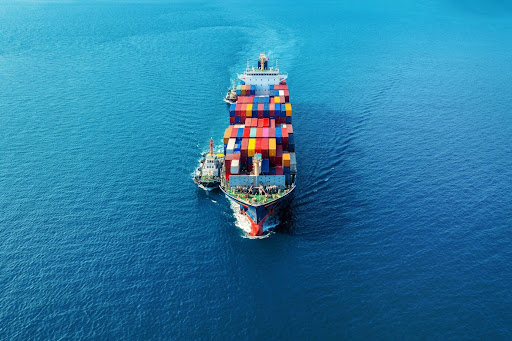Exploring the Significance of Sea Freight Forwarding in Global Trade

In the intricate web of global commerce, sea freight forwarding emerges as a vital link connecting businesses across borders. The significance of sea freight forwarding services in global trade cannot be overstated, as it plays a pivotal role in facilitating the smooth movement of goods between nations. This article delves into the various aspects that make sea freight forwarding an essential component of international trade, examining its impact on businesses and the global economy.
Efficiency in Transportation:
Sea freight forwarding is renowned for its efficiency in transporting large quantities of goods over long distances. Containers loaded onto ships can accommodate a vast array of products, from raw materials to finished goods, making it a cost-effective option for businesses engaged in international trade. The ability to transport bulk shipments efficiently contributes to the reduction of transportation costs, ultimately benefiting both manufacturers and consumers.
Global Connectivity:
One of the primary advantages of sea freight forwarding is its ability to connect businesses globally. As ships, operated by sea freight forwarders, navigate the world’s oceans, they serve as conduits for trade, linking manufacturers, suppliers, and consumers from different continents. This global connectivity opens up new markets, enabling businesses to access a broader customer base and fostering economic growth on an international scale.
Economic Impact:
Sea freight forwarding significantly influences the global economy. By facilitating the movement of goods on a large scale, including ocean freight services, it stimulates economic activity and promotes international trade relationships. Ports and shipping lanes become crucial hubs of economic activity, creating job opportunities and boosting local economies. The efficiency of sea freight forwarding contributes to the overall competitiveness of nations in the global marketplace, fostering economic growth and stability on a broad scale.
Environmental Considerations:
While sea freight forwarding is a key player in global trade, it is essential to consider its environmental impact. Efforts are underway to make shipping more sustainable, with advancements in technology aimed at reducing carbon emissions and adopting eco-friendly practices. As the industry evolves, the focus on environmentally responsible sea freight forwarding becomes increasingly important to address the challenges of climate change. Implementing greener practices and embracing innovations contribute to the ongoing commitment to balancing economic growth with environmental conservation in the realm of sea freight forwarding.
Supply Chain Resilience:
Sea freight forwarding enhances the resilience of global supply chains. By providing a reliable and cost-effective mode of transportation, it ensures the steady flow of goods even in the face of disruptions. The flexibility of sea freight allows businesses to adapt to changing market conditions and navigate unforeseen challenges, contributing to the overall stability of supply chains on a global scale. In times of uncertainty, the strategic involvement of sea freight forwarders becomes crucial for maintaining the robustness of supply chain networks.
Regulatory Compliance:
Navigating the complexities of international trade requires adherence to various regulations and customs procedures. Sea freight forwarding professionals, particularly international ocean freight shipping companies, specialize in ensuring compliance with the diverse regulatory frameworks governing the movement of goods between countries. Their expertise is invaluable in avoiding delays, penalties, and other complications that can arise due to regulatory non-compliance.
Bottom Line:
The seamless connections forged by sea freight forwarding are integral to the dynamics of global trade. The efficiency, global connectivity, economic impact, environmental considerations, supply chain resilience, and regulatory compliance associated with sea freight forwarding collectively contribute to its significance in the contemporary business landscape. As international trade continues to evolve, the role of sea freight forwarding services will remain indispensable in fostering a globally connected and prosperous economy.

